- New €21 million Kilkenny development
- Deputy CEO Leaves HSE
- New members of the MAC
- Mater Hospital CEO
- OLCHC CEO
- MAU at Bon Secours Cork
- HSE CFO
- Patients will benefit from research
- Guide for managers
- The state of the nation’s health
- High rate of satisfaction with Tallaght Hospital
- Life-saving medicine rules
- Sixty four new ambulances
- Fire guidance for nursing homes
- Helping the homeless
- People taking more prescribed medication
- Minister visits Arranmore Island
- Abortion services urged
- New diabetes cycle of care
- Over 2,000 babies screened
- Shedding light on medical imaging
- Tackling Cyberchondria
- Trafficking in human organs
- Have your say on HIQA plan
- National Sexual Health Strategy
- Code of practice for food marketing
- Injecting facilities
New €21 million Kilkenny development
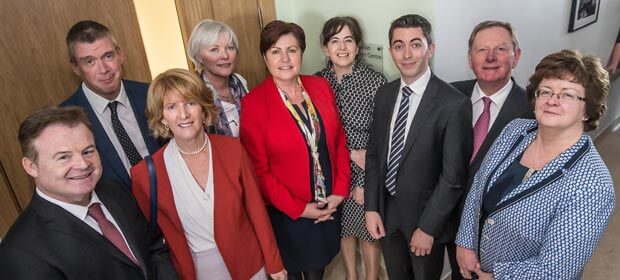
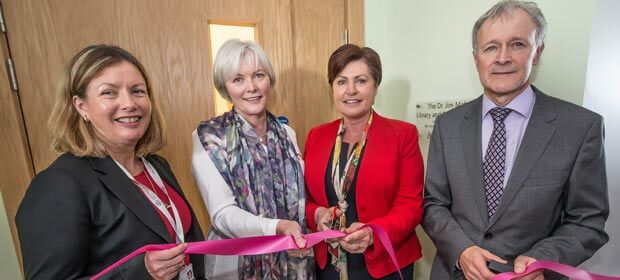
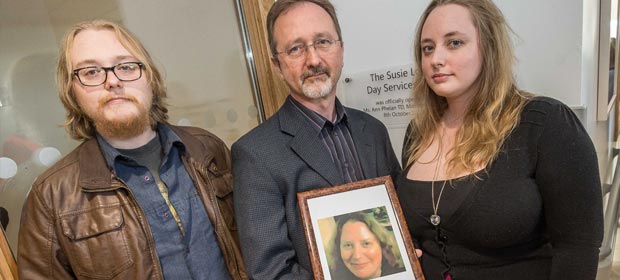
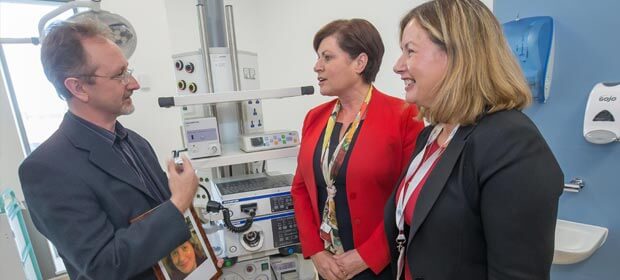
Deputy CEO Leaves HSE
Ms. Laverne McGuinness, Deputy Director General with the HSE and one of the country’s most experienced health managers is leaving the Executive to work in the private sector.
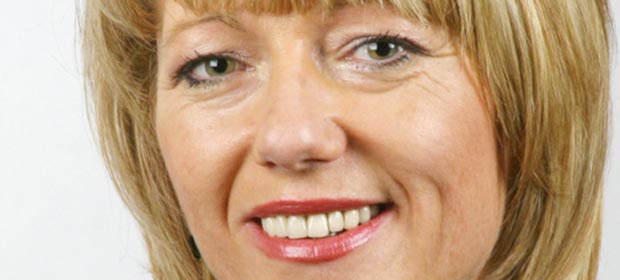
She is to take up a role with nursing home provider the Talbot Group early next year.
Ms. McGuinness has worked in the health services for over 19 years. She has been with the HSE since its establishment over ten years ago and has been Deputy Director General since January 2013. From October 2009 to December 2012, she was HSE National Director of Integrated Services and was previously HSE National Director of Primary Community & Continuing Care. Before the establishment of the HSE she worked as an accountant and Asst. Chief Executive with the Northern Area Health Board.
Within the HSE she is responsible for Strategic and Service Planning, Performance Management, Governance and Accountability and leads on cross cutting service deliverables and implementation of change programmes.
Earlier this year, she won a Public Sector Leaders Award at the Women’s Executive Network (WXN) Leadership Summit and Awards held in Dublin to honour women who held senior positions and were making an impact on the public sector in Ireland and/or in Europe.
Ms. Laverne is a Fellow of the Institute of Certified Public Accountants ( FCPA), has an MSc in Management and Application of IT in Accounting from Dublin City University, Leadership Development Programmes and a Professional Diploma in Corporate Governance from the Michael Smurfit Business School
The Director General of the HSE, Tony O’Brien, has thanked Ms McGuinness for her work in the HSE and wished her well in the new phase of her career.
“Laverne is one of the most experienced members of the leadership team of the HSE. Her insight and experience across all of the services will be greatly missed”, he said.
“I would like to thank Laverne for her hard work, diligence and input in helping to improve and reform the health services through times that have been far from easy.
“Many of the positive steps that are being taken currently in reforming the health services have been assisted greatly by Laverne’s experience and knowledge.”
The Talbot Group was established in the early 1990s, cares for 250 clients and employs over 420 staff.
It began by opening two nursing homes in Dublin and Meath but has since expanded into residential services for adults with significant learning disabilities and a specialist facility for adults with autism, intellectual disabilities and Down Syndrome.
New members of the MAC
Mr. Pat O’Mahony has been appointed Deputy Secretary of the Department of Health, heading up its Governance and Performance Division.
Dr. Colm O’ Reardon has been appointed Deputy Secretary of the Department of Health, heading up its Policy and Strategy Division.
Mr. Muiris O’ Connor has been appointed Assistant Secretary of the Department of Health, heading up its R & D and Health Analytics Division.
The existing members of the Management Advisory Committee are the Secretary General, Mr. Jim Breslin, Assistant Secretary, Ms. Tracey Conroy who heads up the Department’s Acute Care Division, Assistant Secretary, Mr. Greg Dempsey, who is the Head of the Finance and Evaluation Division and Assistant Secretary, Mr. Fergal Goodman who is Head of the Primary Care Division, the Department’s Chief Medical Officer, Dr. Tony Holohan, Dr. Siobhan O’Halloran, the Chief Nursing Officer and Ms. Frances Spillane who heads up the Social Care Division.
A new Assistant Secretary for Human Resources is due to be appointed before the end of the year.
Mater Hospital CEO

Mr. Gordon Dunne has been appointed Chief Executive of the Mater Hospital, Dublin.
He succeeds Prof. Mary Day who has been appointed CEO of the Ireland East Group of Hospitals.
Mr. Dunne joined the Ireland East Hospital Group in February 2015 as Chief Operating Officer following four years as Chief Executive of Cappagh National Orthopaedic Hospital, a role he retains.
He formerly held several positions within Cappagh including Director of Operations before being Chief Executive.
Cappagh is Irelands’ major centre for elective orthopaedic surgery, has been the pioneer of orthopaedic surgery in Ireland and is now the biggest dedicated orthopaedic hospital in the country.
Under Mr. Dunne’s leadership, Cappagh received a major international quality improvement award in 2013 – the CHKS Quality Improvement Award recognises substantial improvements in patient care and patient experience in addition to staff welfare, safety and morale. He was also responsible for the successful completion of significant infrastructural projects, including new theatre suites, recovery room, a 10-bed isolation unit and commercial Central Decontamination.
He is a member of the MMCUH Board of Directors and his national profile has involved participating in and chairing committees for radiation safety, minimal handling, risk management, risk taxonomy and service level agreement negotiations. He has collaborated with the Orthopaedic Alliance in the UK for several years.
OLCHC CEO

Ms. Helen Shortt has been appointed Chief Executive Officer, Our Lady’s Children’s Hospital, Crumlin (OLCHC) Dublin.
She qualified as a dietitian in 1981 and worked in various hospitals as a dietitian until 2004.
She was a member of the senior management team at Beaumont Hospital since 2004, having previously worked as Head of the Department of Nutrition and Dietetics. Many of her senior management roles involved service development, service planning and service integration. She was Hospital Manager of, and responsible for, the integration of St. Joseph’s Hospital with Beaumont Hospital over a four year period.
This was followed by a Business Planning & Performance Management role which included executive responsibility for the delivery of the National Cancer Strategy at Beaumont, including Radiation Oncology on site, an expansion of the Live Donor Transplant Programme and various capital projects as well as being executive lead for Capital Projects & Estates. More recently Helen held the role of Chief Operations Officer at Beaumont Hospital.
Ms. Shortt holds a Master’s degree in Health Services Management as well as professional qualifications in nutrition and dietetics.
“I am very much looking forward to working with management and staff at Our Lady’s Children’s Hospital, Crumlin, and to contributing to the fulfilment of the hospital’s mission to constantly improve the health and wellbeing of children and adolescents in a safe environment which is driven by quality healthcare and supported by excellence in knowledge, education and research,” she said.
MAU at Bon Secours Cork
The Medical Assessment Unit at Bon Secours Hospital Cork which was officially opened by An Taoiseach, Mr. Enda Kenny T.D. last Friday is the first phase in the development of the hospital’s plans to expand emergency care for patients.

The €1m Medical Assessment Unit (MAU) at the hospital is an extension of emergency patient services for the population of the region.
Speaking at the unveiling of the plaque to commemorate the official opening of the unit, An Taoiseach Mr. Enda Kenny said : “The Medical Assessment Unit at the Bon Secours Hospital Cork is providing increased capacity for GPs whose patients require urgent medical care. This new acute medical service at the Bons provides GPs and patients with rapid access to an acute medical service provided by consultants in emergency medicine and immediate access to state of the art diagnostics and a hospital bed if required. The unit marks an important step forward in providing a greater level of acute healthcare for patients across the Munster region. Over 4,000 patients have passed through its doors in the past twelve months. That is 4,000 patients who would otherwise have had to attend Accident & Emergency Departments. Part of the rationale behind the opening of this Unit was to make a genuine contribution towards alleviating pressure on other hospitals.”
Mr. Harry Canning, Hospital Manager, Bon Secours Hospital Cork said- “We welcome the Taoiseach today to officially open the Medical Assessment Unit. The unit has been a great success in providing rapid access to emergency medical care for patients in Cork and the wider Munster region. We expect that the Medical Assessment Unit will grow by 20% per annum over the coming years. In addition, existing services such as Cancer, Cardiology and Orthopaedics are growing strongly and will require additional capacity and infrastructure going forward.”
To support this growth, the Bon Secours Hospital Cork is investing €64m in a major expansion that will include development of radiotherapy to support cancer services, 80 private single rooms, additional operating theatres and intensive care facilities. The 6 storey development will commence in 2016 and take approximately 2 years to complete”.
A modern 7 bed purpose built facility, the MAU is open to patients 5 days a week, Monday to Friday, 8am to 6pm. Attendance is by way of GP referral.
The expansion of the Hospital and the development of services will bring 75 new clinical jobs at the Hospital and up to 200 construction and ancillary industry related jobs for the duration of the construction phase.
The Group CEO of the Bon Secours Health System Mr. Bill Maher said “The MAU is part of our broader plan to develop services across the Bon Secours Health System. Following significant investment in all of our hospitals – €30m in Glasnevin, €13m in Tralee, €45m in Galway, and some €24m in Cork to date since 2005, we now plan a major expansion in Cork of approximately €64m”.
HSE CFO
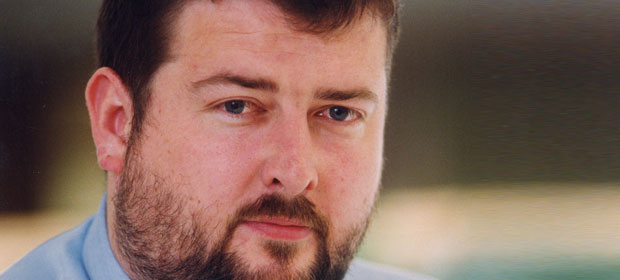
Mr. Stephen Mulvany has been formally appointed as HSE Chief Financial Officer. He was previously appointed interim CFO.
Mr. Mulvany’s previous role as HSE National Director of Mental Health continues at present to be filled on an interim basis by Ms. Anne O’Connor.
Patients will benefit from research
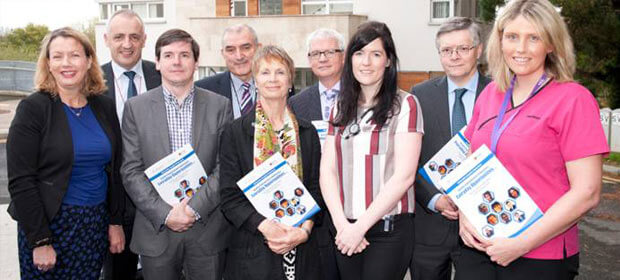
Patients of the South/South West Hospitals Group (SSWHG) would benefit from the latest clinical expertise and knowledge as it flowed into the hospital system from education and research carried out by its primary academic partner UCC and its relationships with the Royal College of Surgeons in Ireland (RCSI), Waterford Institute of Technology (WIT) and a range of other educational institutes, according to Mr. Richard Dooley, General Manager, University Hospital, Waterford.
He was addressing a conference in the hospital which focused on quality improvement in acute hospital care.
Mr. Dooley said research, integration and collaboration, teaching and education opportunities would present through the hospital’s academic collaborations and would make for an attractive working environment – which in turn would ensure that UHW would be able to recruit the best clinical talent available. “This ensures that our patients benefit from the latest clinical expertise and knowledge as it flows from education and research into the hospital system. This thread flows through the contributions at this conference,” he said.
The conference focused on quality improvement in acute hospital care. Entitled “Everyday Opportunities”, nine UHW health professionals described changes or new services that they have implemented in the past year.
“It’s clear from this conference’s presentations that there is ability and initiative aplenty in this hospital. This is matched with the extraordinary commitment “day in day out” of an excellent and respected team of professionals at all levels. Together, we are about ensuring that complex care is safely provided in a large hospital such as this,” said Mr. Dooley.
Dr. Eddie O’Donnell, Consultant Obstetrician and Gynaecologist, and Clinical Lead for UHW Maternity Services described how UHW had reviewed each of the recent investigation reports relating to Irish maternity services. As a result, he and his medical and nursing colleagues had made changes to how the service was delivered and how each profession practised. This ensured that the clinical care provided in Waterford was up to date, safe and in line with national and international best practice.
Ms. Ayshe Mevlit, Staff Nurse in the Cardiology Department spoke about her work with the Emergency Department nurses to improve their practices when doing ECG tests.
Ms. Eleanor Maher, Senior Physiotherapist shared the findings of a recent audit in the orthopaedic wards, which looked at patterns of bed rest and activity for inpatients.
Dr. Seán Leavey, Consultant Nephrologist gave a short presentation about a quality initiative in the South East Dialysis Services and Ms. Niamh Molloy Nurse Specialist described a new pain management treatment being introduced and evaluated for women in labour.
Mr. Joe O’ Beirne, Consultant Orthopaedic Surgeon reported on the learning from an audit conducted on the outcomes for babies with Developmental Dysplasia of the Hip – based on children born in the South East between 2009 and 2012.
Ms. Barbara Johnson, Senior Dietician described a Quality Improvement Project in Enteral Feeding, Dr. Cliona O’ Donnell spoke on improving efficiency in Medicine for the Elderly consultations and Ms. Louise Brent, Nurse Specialist discussed an international audit that UHW is participating in called “The ICON audit of nursing care for hip fracture patients”.
Ms. Lizzy McCue, who is a service user, spoke about her Waterford Healing Arts Trust project with artist Philip Cullen to capture the stories shared by the dialysis patients which have been collected into a book.
Responding to the day’s presentations, Mr. Seán Swift, Chair of UHW’s Patient Partnership Forum said users of services at the hospital had great respect for the professionals working there. This conference, said Mr. Swift, gave tremendous assurance that there were excellent people working in the hospital and – most importantly – in his view that patients and their families could be assured that there was a constant awareness of the need to improve the quality and safety of services.
Guide for managers

Mr. Tony O’Brien, Director General Health Service Executive and Professor Chris Ham, Chief Executive, Kings Fund launched Creating a Positive Work Environment in our Health Services at HR Masterclass on November 5, 2015.
The Guide includes guidance to managers on minimising the potential for conflicts in the workplace and on managing conflicts if and when they arise. The Guide emphasises the need for early intervention by line managers to prevent workplace conflicts escalating. Creating a positive workplace environment and managing conflict at work if it should arise is an integral part of good people management. The principles and good practice outlined in this Guide is a useful aide to managers and employees of the HSE.
Led by Human Resources staff, a Positive Workplaces Strategy Group was instigated with input from relevant stakeholders supporting the themes in the People Strategy. The Guide produced by this group has looked at best practice in creating a positive workplace environment at each of our locations.
A good relationship among employees leads to improved teamwork and, in turn, to a more responsive client/patient-focused service and better patient outcomes.
The state of the nation’s health
Fewer than 1 in 5 Irish people now smoked, 85% had good health but 28% had a long-standing condition and while obesity was levelling out, 60% of people were still overweight, according to the Healthy Ireland survey – the first national comprehensive survey of the nation’s health in eight years.
The survey revealed that two thirds of people were not getting enough exercise, four out of ten people binged when drinking and while most people ate fruit & vegetables daily, only 26% ate the recommended five portions.
It also showed that 17% did not use a any form of contraception outside of a steady relationship, almost half the population was in a social club or organisation, levels of mental health were good but were better among men than women and 50% of people knew someone with dementia.
Some of the other key findings in the Healthy Ireland Survey included:
- Daily smoking rates have fallen to 19% with more adults now ex-smokers than current smokers.
- 63% of smokers are planning or considering quitting.
- The proportion of the population which is overweight or obese has stabilised but remains high at 60% .
- Only 32% of the population meet the national physical activity recommendations.
- “Being more physically active” was the change most frequently selected by individuals for improving their health and wellbeing.
- 39% of drinkers binge on a typical drinking occasion.
- Only 15% of those drinking at harmful levels recognised that drinking harmed their health.
- 9% of the population were considered to have probable mental health problems.
Dr. Tony Holohan, Chief Medical Officer at the Department of Health commented that “We know in Ireland that the number of people experiencing chronic diseases is increasing dramatically. And while we rightly focus on improving the quality and efficiency of the health services needed to care for these patients, we also need to have a greater emphasis on prevention, as we know that the majority of these chronic diseases are preventable. The valuable data coming from this survey will assist us to more effectively address a range of issues such as overweight and obesity, problematic alcohol consumption, smoking, and physical inactivity.”
He said the survey results would assist the Department of Health and its stakeholders to inform current policy direction and would be used to develop new policy responses from the considerable evidence about health behaviours in Ireland.
The Healthy Ireland Survey was conducted by Ipsos MRBI on behalf of the Department of Health. A total of 7,539 people aged 15 and over from a randomly selected representative sample of households in Ireland were visited between November 2014 and August 2015.
High rate of satisfaction with Tallaght Hospital
Almost three quarters of those who had used Tallaght Hospital, Dublin in the previous 12 months were satisfied with the care that they received, according to a new survey.
The Health Assets and Needs Assessment (HANA) Tallaght 2014, was undertaken by the Department of Public Health and Primary Care, Trinity College Dublin, and funded by the Adelaide Health Foundation and Tallaght Hospital.
Of the 26% who were dissatisfied, the main reasons were waiting times and not receiving care as quickly as they would wish.
Primary carers reported that 23% of household members had used Tallaght Hospital in the previous 12 months. Of these, 84% would recommend the hospital to a friend or family member.
Forty four per cent indicated that they would like to be involved in decisions, which were made to improve or change services within the hospital.
Nine per cent indicated that there was a person in the household who was on a waiting list for treatment within the hospital. Of these, 48% were waiting for less than six months, 20% between seven and ten months and 32% for longer than thirteen months.
Sixty one per cent found the length of time they were waiting to be very unreasonable, while a fifth indicated that their waiting time was very reasonable.
The study covered almost 350 households across Tallaght. In surveying the primary carers in 343 households, the circumstances of 1,082 people were captured.
Mr. David Slevin, CEO Tallaght Hospital, welcomed the insights provided into the patient experience at the hospital and underlined a commitment to improving the patient experience. “At Tallaght Hospital we are constantly working to improve the patient experience and our model of care. In this regard, we very much welcome the insights provided by this study and the valuable patient feedback it presents. We are pleased that three out of four primary carers highly rate their experience at the hospital, however, we are also extremely conscious of the need to reduce waiting times for our services. The study also shows the importance of our hospital locally and indicates that it is firmly rooted in the community. We welcome this report as a model of community engagement and are committed to using it to help shape the provision of our services.”
Life-saving medicine rules

Minister for Health, Dr. Leo Varadkar has signed new laws allowing life-saving rescue medicines to be administered by trained members of the public in emergency situations, such as glucagon for diabetic hypoglycaemia, adrenaline auto-injectors (epipens, anapen, jext, emerade etc) for severe allergic reactions and glyceryl trinitrate for angina (severe chest pain).
The full range of emergency medicines covered by the new regulations are:
- Arenaline auto-injectors (epipens) (treatment of anaphylaxis)
- Glyceryl trinitrate (treatment of unstable angina)
- Salbutamol (treatment of asthma attacks)
- Glucagon (treatment of diabetic hypoglycaemia)
- Naloxone (treatment of opioid overdose)
- Entonox (gas mixture consisting of 50% nitrous oxide and 50% oxygen) (management of severe pain when used by emergency rescue organisations e.g. mountain rescue teams).
Between 2007 and 2013, 16,722 people died in Ireland after suffering a heart attack from multiple causes, 359 died following an acute asthma attack, 17 from hypoglycaemia, and four from severe allergic shock.
Minister Varadkar said: “These are important new healthcare initiatives which have the potential to save lives. I am allowing organisations such as colleges, workplaces and sports venues to hold emergency ‘rescue’ medicines and arrange for staff to be trained in their use. Pharmacists will also be able to supply and administer these medicines to individuals in emergency circumstances.
“These new arrangements do not in any way change the existing ‘good Samaritan’ rule which allows any member of the public to assist a person in distress to administer a medicine which has been prescribed to them. Equally, these Regulations in no way diminish the responsibility or the importance of people continuing to carry the medicines that they need to manage their own health needs.
Organisations such as colleges, workplaces and sports venues will be allowed to hold these medicines and arrange for staff to be trained in their use. The Pre Hospital Emergency Care Council which accredits paramedics will be given the role of accrediting courses for lay people which will be available in coming months.
The Minister has also expanded the range of vaccines which can be administered by pharmacists. Since 2011 pharmacists have been able to offer the flu vaccine to patients. Under the new regulations pharmacists will now also be able to offer shingles and pneumococcal vaccines.
Two thirds of shingles cases occur in individuals over 50 years of age. Pneumococcal infection is the most common cause of pneumonia.
Sixty four new ambulances
The first three of 64 ambulances being provided this year in a €9.4 million investment under the fleet replacement programme, along with a new Rapid Response Vehicle, were unveiled by Minister for Health Leo Varadkar.
The 64 vehicles will be allocated to ambulance bases across Ireland before the end of the year to replace vehicles which have reached the end of their life-cycle, and to support additional services. A Rapid Response Vehicle was also unveiled today, which will allow paramedics to get to the patient and start treatment while an ambulance is in transit.
All 64 ambulances are being delivered under a contract signed earlier this year with Wilker Auto Converters of Clara, Co. Offaly through the HSE fleet replacement programme. The contract is expected to deliver cost savings of about 12% over the life of the contract.
In addition to standard equipment such as cardiac defibrillators and 12-lead ECG monitors, the vehicles are fitted with additional equipment including mechanical in-vehicle CPR. Paramedic teams have also been given direct access to cardiac catheterisation labs for patients with cardiac conditions, and will no longer have to attend the nearest ED for diagnosis.
Minister Varadkar said: “I’m delighted to see these vehicles coming into service. It’s a very significant investment in the ambulance fleet which allows us to support extra services and replace older vehicles. Each ambulance is equipped with state-of-the-art technology as standard. Our ambulances and crews cover enormous distances every year so it’s vital that we continue to upgrade the fleet, to allow our highly-trained paramedics to give the best service they can, when and where our patients need it.
“At the same time we are modernising the ambulance service to better reflect 21st century healthcare, including the use of Rapid Response Vehicles like the one on display here today. In some instances these can actually be more effective than an ambulance. And the Ambulance Service continues to expand the 130 community first responder groups operating in 18 counties. These local volunteers are dispatched at the same time as an ambulance, and more groups will be set up next year.
The NAS fleet replacement programme is part of an ongoing investment in equipment, technology and clinical standards. This includes:
- The introduction of Rapid Response Vehicles, which allow paramedics to get to the patient and start treatment while the ambulance is in transit
- The Emergency Aeromedical helicopter service
- The Intermediate Care Service for non-emergency patient transfer
- The move from regional services to a national service.
The Ambulance Service is using new technology including a single national control system, TETRA digital radio and communications, vehicle tracking and computer-aided dispatch. This means that the closest available resource is dispatched to an emergency incident.
Martin Dunne, Director of the National Ambulance Service said: “These are the first of the 64 vehicles for the National Ambulance Service which is part of our vehicle replacement strategy and it is great to see them now entering service. These vehicles will make a big difference to NAS in the work that the paramedics and advanced paramedics do each day. They have the latest technology and are energy efficient so we are doing our bit for the environment also.”
The National Ambulance Service (NAS) has 500 vehicles, which travel more than 20,000,000 kilometres a year. The fleet includes 254 emergency ambulances and 52 rapid response vehicles (RRVs). There are also 48 intermediate care vehicles, for inter-hospital and non-emergency patient transfers, and which can carry more than one patient if needed.
The Service operates cardiac testing and monitoring so that patients can be triaged at the scene and brought directly to a cardiac centre if necessary. Its vehicles also carry defibrillators, as well as mechanical in-vehicle CPR devices. The community first responder capacity is constantly being expanded, where local volunteers are dispatched at the same time as an ambulance.
Fire guidance for nursing homes
HIQA has published draft fire guidance precautions for nursing homes. It has been produced to provide clarity for providers, persons in charge and staff working in nursing homes about the precautions that should be in place to comply with the regulations. It also reflects best current and international best practice within the sector including learning from incidents and fatal accident inquiries.
Draft Fire Precautions in Designated Centres – Guidance for Registered Providers and Persons in Charge of Designated Centres for Older People, is now available for public consultation and HIQA is seeking feedback from nursing home providers, residents and the general public.
The draft guidance sets out the necessary arrangements and precautions that a nursing home should have in place to satisfy regulations related to fire precautions in designated centres for older people. It also outlines what inspectors would expect to see in a fully compliant centre.
Ms. Mary Dunnion, Director of Regulation at HIQA said “There are special considerations to fire safety in nursing homes, such as the safe evacuation of people who have mobility issues or safe storage of highly flammable equipment, such as oxygen tanks. This guidance was produced to ensure that nursing home providers are clear about their responsibilities and to provide an outline of what fire safety in that context looks like. Ultimately, it will help ensure that elderly people in our nursing homes are properly protected.”
HIQA has been examining fire safety as part of its inspection programme since 2009 and this guidance was created in response to issues identified during inspections. Nursing homes are required to give details of their compliance with fire safety regulations to HIQA on a regular basis as well as during the inspection process. HIQA has appointed a dedicated fire-estates inspector to support this inspection programme.
The consultation will run until December 18, 2015, after which, all submissions will be analysed. HIQA may make further amendments before publishing the final document. The guidance can be found at http://www.hiqa.ie/press-release/2015-11-06-hiqa-publishes-draft-fire-guidance-nursing-homes-public-consultation
Helping the homeless
Bon Secours Hospital Cork has provided €50,000 funding for a shower block extension at St. Vincent’s Homeless Hostel, Anglesea St. Cork.

This hostel, which is run by St. Vincent De Paul, accommodates homeless men from all over Munster, and is one of the key frontline services at the coldface of the ongoing homelessness crisis.
Mr. John Calnan, Manager of St Vincent De Paul homeless services in Cork said: “This hostel caters for 74 service users every day, and has a significant waiting list. We are delighted to have forged this relationship with the Bon Secours Hospital.”
Mr. Andrew McCarthy, Mission Leader at Bon Secours Hospital said: “We have a long track history of supporting homeless charities here in Cork through our Community Initiative fund, and are privileged to assist with the provision of funding to construct this shower facility. It is but a small intervention in the current crisis, but is essential for St. Vincent De Paul.”
People taking more prescribed medication
People in Ireland are taking more prescribed medications now than they were 18 years ago, according to a new study from the Royal College of Surgeons in Ireland Department of General Practice.
However, the research also revealed that despite this increase, the quality of prescribing medications in Ireland has improved with a marked 60% decreased risk associated with prescribing drugs in older people.
The research, which charted how prescribing has changed for medical card patients over a 15 year period, was developed by RCSI in conjunction with the Health Research Board Centre for Primary Care Research and Trinity College Dublin, and was recently published in the BMJ Open. This study is based on data from the Health Service Executive Primary Care Reimbursement Service (HSE-PCRS).
The research showed a 250% increase in the prevalence of polypharmacy (the use of five or more medications by a single patient) across all age groups from 1997 to 2012. When demographic changes were accounted for, the number of people being prescribed five or more medications increased four-fold and the number of people taking ten or more medicines increased ten-fold.
The study also investigated potentially inappropriate prescribing (PIP), which is the use of a medication in a way that its risks outweigh its benefits, in those aged over 65. It was found that despite the surge in polypharmacy, a main driver of PIP, there was a 60% decrease in risk of PIP in the older Irish population. Given that polypharmacy has increased and that PIP risk has decreased, the study suggests that clinicians are now prescribing more appropriately.
The medications which have seen the highest prescription increases over the 15 year period of the study include statins for cholesterol, anti-platelet drugs such as aspirin and proton pump inhibitors for stomach acid. Prescriptions for drugs such as aspirin and digoxin, which when prescribed at higher doses are unlikely to provide further benefit but increase the risk of side effects, were found to decrease over the course of the study.
Minister visits Arranmore Island

Minister for Health, Dr. Leo Varadkar has visited Arranmore Island in Co. Donegal to assess its health facilities and see how island residents dealt with health issues. This is the first time that a Minister for Health has visited the island in living memory.
Minister Varadkar said: “I wanted to see at first hand how island residents manage their health needs, and to assess the State’s ability to meet those demands. As Minister for Health I am trying to get direct experience of our health service, and this is a good opportunity to see how people are cared for in unique circumstances.”
The visit coincided with an HSE review into island health services, which involved residents and professionals living and working on Arranmore and other islands
Arranmore has a population of 514, largely Irish speaking, which rises to 2,000 in the summer months when Gaeltacht students, migrant workers and tourists visit.
Fifty per cent of the Island population is over 65 years of age and half live alone. Many of those in employment commute daily to work on the mainland. The main source of employment on the island is sheep farming, fishing, construction, and providing home care.
The Department of Heath said there was a dedicated health centre with GP services three days a week. The island GP was resident and had practised on the island for 30 years. The locum GP had also worked on the island long term. The Public Health Nurse worked Monday to Friday and travelled to the island daily. The primary care centre was located 15 km away on the mainland. Access to the multidisciplinary team was on a needs assessment basis and visits were made to the island when required.
Out of hours emergency services on the island are provided through 999 and facilitated by the RNLI service located at the Arranmore lighthouse. Community groups organise sporting, recreational and entertainment services for all residents which includes meals on wheels and services to promote mental health.
Abortion services urged
Abortion services that are high quality and focused on women’s needs must be part of mainstream healthcare in Ireland. That’s according to Ireland’s leading sexual health provider, the Irish Family Planning Association (IFPA), when it released its annual report on the Global Day of Action for Access to Safe and Legal Abortion.
IFPA Chief Executive, Mr. Niall Behan, said: “Last year the IFPA provided information and support to over 3,500 women, girls and couples with an unplanned pregnancy. Many of our clients’ experiences turned into a crisis because they were unable to access an abortion within the Irish healthcare system. We know that at least 3,735 women travelled from Ireland to the UK in 2014 for abortion services. Other women sought medication online, while some women had no option but to continue with an unwanted pregnancy.”
“At a time when a referendum to repeal the Eighth Amendment of the Constitution is likely, we need to start thinking about what kind of reform should take place. The IFPA knows from its services that what women need is access to abortion services in Ireland that are dedicated, high quality, and based on international best practice standards. Whatever reform takes place, it must ensure women’s health and wellbeing.”
The report noted an increase of 38% in the number of pregnancy counselling clients aged over 44 in 2014. According to IFPA Counselling Director, Evelyn Geraghty, “The number of women over 44 accessing our pregnancy counselling services has increased during the past two years. Further research is needed to better understand this trend.”
The report also presented data from the IFPA’s clinical service for female genital mutilation (FGM). Opened in 2014, the service is the first of its kind in Ireland to provide specialist care to women affected by FGM. Women have sought support in relation to ongoing pain, infection, sexual dysfunction, and difficulties conceiving, while some women have also accessed counselling. IFPA Medical Director, Dr Caitriona Henchion, said, “All of our clients have held negative attitudes towards FGM and would not approve of any other girl being subjected to the practice. This attitude among women from FGM-practising communities is significant, and is essential for the full eradication of FGM.”
New diabetes cycle of care

Minister for Health, Dr. Leo Varadkar and Minister for Primary Care, Social Care & Mental Health, Ms. Kathleen Lynch have officially launched the new Diabetes Cycle of Care service for holders of medical cards and GP Visit Cards who have Type 2 Diabetes.
The new service which has been introduced at participating GP clinics, allows qualifying adult patients with Type 2 Diabetes to have their condition reviewed thoroughly twice a year. It is estimated that around 70,000 patients with Type 2 Diabetes will be eligible.
Approximately 5.6% of the adult population in Ireland, or 190,000 people, have diabetes with Type 2 diabetes accounting for over 85% of these cases. It is estimated that 35,000 of Type 2 diabetes cases remain un-diagnosed.
Minister Varadkar said: “This is a major step forward in expanding the scope of general practice into Chronic Disease Management. It allows patients with Type 2 Diabetes to be managed in the community, by their own GP and practice nurse they know, rather than in a hospital clinic where they might have to queue for hours to see a different doctor each time. This is better for patients and it also frees up hospital resources for more complex cases. I hope that the Diabetes Cycle of Care service will be used as a model for more chronic diseases to be looked after in the community, including COPD, asthma and heart failure.”
As part of this new Cycle of Care, qualifying patients will have two annual visits to their GP for a structured review of their condition. This will include a review and recording of blood results since registration, a review of their medication and lifestyle factors, a symptomatic foot review, continuing participation in the eye prevention programme and onward referral if appropriate, assessment of blood pressure, BMI, and further education about their diabetes.
Mr. John Hennessy, National Director of the HSE Primary Care Division, welcomed the commencement of this new service. He said: “The rollout of this Cycle of Care for adult patients with Type 2 Diabetes is the first step we are taking towards extending programmes of care for the management of chronic diseases in primary care. By early October, there were 31,000 patients already registered by 900 GPs for this new service and I would like to encourage GPs to continue to register their patients as soon as they can.”
Welcoming the announcement, Professor Hilary Hoey, Chairperson, Diabetes Ireland said: “Diabetes Ireland is delighted to see this initiative launched. The ability to have two diabetes management reviews each year will no doubt help detect any related health issues much sooner enabling earlier intervention thus improving quality of care for the individual. We see the Cycle of Care as a first step in the provision of a structured diabetes service that must be extended to all people with Type 2 diabetes as soon as possible”.
It is expected that the number of people with diabetes will increase by a further 60% over the next 10 to 15 years, a reflection of a number of factors including changed lifestyle pattern, increased weight gain, sedentary lifestyle and increased life expectancy within the population. Type 2 Diabetes is usually diagnosed in people over 40 years with a peak age of onset 60-70 years. However, it is increasingly being diagnosed in younger people. Therefore, in addition to being an important public health issue, diabetes care consumes up to 10% of the Irish healthcare budget.
Over 2,000 babies screened
Over 200,000 newborn babies in Ireland have been screened for hearing impairments, under the HSE’s universal newborn hearing screening programme.
This screening service began on a phased basis in April 2011 and is delivered on behalf of the HSE by Northgate Public Services. It is now available in all maternity hospitals throughout Ireland with approximately 70,000 babies a year undergoing hearing screening.
Newborn hearing screening is a universal programme as over 50% of babies born with a hearing loss are to parents where there are no clear risks of hearing impairment. The programme aims to identify moderate, severe and profound hearing impairment in newborn babies and is making a life changing difference to babies born each year with a moderate or greater hearing impairment.
In Ireland, one to two babies in every 1,000 are born with a hearing loss in one or both ears.
On average 6,000 babies are screened each month. Of these, 180 babies (3%) are referred to the HSE Audiology Service for further hearing diagnostic assessments and approximately nine babies are identified with a permanent childhood hearing loss.
Some 90% of these babies are born into families with no experience, or history, of childhood deafness.
Shedding light on medical imaging
Tallaght Hospital in partnership with the Institute of Medical Illustrators (IMI) hosted a unique exhibition which sheds light on the world of medical imaging.
IMI, which was founded in 1968, represents medical illustrators from all over the world – those working within healthcare’s clinical photography and video fields as well as graphic designers and medical artists. Medical Illustrators communicate treatments and conditions and the imagery produced is commonly used to help diagnose conditions and assist the planning of complex surgery.
Ms. Lucy Nugent, Chief Operations Officer at Tallaght Hospital who opened the exhibition said: “I am delighted that Tallaght Hospital was chosen as the location for this first visit to Ireland by this fascinating exhibition. It presents a rare and unique insight into the captivating world of medical illustration and affords us all an opportunity to appreciate the invaluable role the profession makes in the enhanced delivery of patient care. This is also an opportunity to recognise and proudly commend the outstanding achievement of our own medical photographer Tommy Walsh who was recently awarded a Gold Award.”
As one of the country’s largest academic teaching hospitals, and one that carries out innovative surgeries and handles specialist cases across different departments, the photography service is essential to the operation of the hospital. The clinical images taken are used for diagnosis, assessment and the ongoing treatment of both inpatients and outpatients. In addition, Tallaght Hospital has built a sizeable library of patient-approved images for clinical teaching/education that is invaluable to students during their training at this academic teaching hospital.
Mr. Tommy Walsh, Medical Photographer at Tallaght Hospital, and a member of the IMI, was recently awarded a Gold Award for his photography of a condition called Eczema Herpeticum. This award is given to a photographic, graphic entry that in the opinion of the judges, clearly and unanimously demonstrates exceptional use of technique, understanding and interpretation of the subject in the illustration and fulfilment of the brief.
Since 1968 IMI has set and maintained standards for the medical illustration profession, bringing together the disciplines of clinical photography, medical art, illustration, graphic design and video within healthcare from all over the world. The Institute’s members are a highly specialised and skilled group of people contributing to the care of patients and the teaching of medicine and allied health subjects.
Tallaght Hospital is one of Ireland’s largest acute teaching hospitals, providing child-health, adult, psychiatric and age-related healthcare on one site. The hospital has 614 beds and employs almost 3,000 staff. The Hospital is a provider of local, regional and national specialities. It is also a national urology centre, the second largest provider of dialysis services in the country and a regional orthopaedic trauma centre.
Tackling Cyberchondria
A new app RCSI MyHealth offers easy access for users to a credible source of health information. The app has been developed by the Royal College of Surgeons in Ireland (RCSI) in conjunction with 16 of Ireland’s leading charity organisations.
RCSI says the app offers users the opportunity to discreetly search for information relating to specific health conditions and allows users to take charge of their own health.
“The information is presented in a clear, focused and organised manner that is easy to understand. It also provides users with information on where to seek advice and support if they are suffering from a health condition.
“With 86% of adults in Ireland now having access to an online device, the number of people turning to mobile devices to manage their lives is soaring. Recent research has found that one in 20 searches using Google was for health-related information and 81% of Irish adults had gone online seeking to self-diagnose, with 46% reporting increased stress or worry as a result of their search.
“Often, consulting search engines with health related queries, draws up the worst-case scenario for medical symptoms, which raises anxiety levels and cyberchondria, which is a condition described as the excessive use of internet health sites which fuels health anxiety.”
Professor Cathal Kelly, RCSI Chief Executive / Registrar said “Recognising signs and symptoms of disease is a very effective method of reducing morbidity and mortality. However when looking for health information, it is important for patients to seek information from a credible source. This app is useful for patients looking for health information and also for health professionals who are looking to provide supplementary information to patients on specific health conditions.”
RCSI MyHealth is available free of charge in the Apple App Store and in Google Play.
Trafficking in human organs
Minister for Health Dr. Leo Varadkar has welcomed the signature by Ireland of the Council of Europe Convention against Trafficking in Human Organs.
The Convention was signed by Ambassador Peter Gunning, Permanent Representative of Ireland to the Council of Europe on behalf of Ireland at the Council of Europe Offices in Strasbourg today.
Increasing the availability of organs is an important measure in combating trafficking in human organs. The Department of Health and the HSE have put a range of measures in place to increase the availability of organs available for transplantation in Ireland. For example, organ donation nurse managers have been appointed in each of the hospital groups to foster a strong culture of organ donation, optimise conversion rates and ultimately increase the number of transplantations that are carried out each year.
The World Health Organization estimates that one fifth of the kidneys transplanted worldwide every year come from the black market. Organ trafficking takes many forms, including removing an organ without consent, offering a financial incentive in exchange for an organ or offering a financial incentive to a healthcare professional to perform a transplant using a trafficked organ. The purpose of the Council of Europe Convention against Trafficking in Human Organs is to prevent and combat trafficking in human organs in order to protect the rights of victims and to facilitate co-operation at both national and international levels on action against trafficking in human organs.
By becoming a signatory to the Council of Europe Convention against Trafficking in Human Organs, Ireland signals its intention to adhere to the provisions set down in the Convention pending the development of the necessary legislation to give effect to the Convention.
Have your say on HIQA plan
Health managers have been asked to give their views on HIQA’s Draft Corporate Plan 2016–2018, which will outline the Authority’s direction and focus for the next three years.
This is part of a public consultation process by people who use health and social care services and other interested stakeholders who have been invited to give their views on this Plan and on the strategic objectives that will provide direction for HIQA over the next three years.
In developing the Plan, HIQA says it has reviewed each of its areas of work to ensure it has maximum impact on the quality and safety of health and social care services.
“We are encouraging a wide range of stakeholders and the general public to engage with this public consultation. We welcome responses to all consultation questions, as well as any additional comments you would like to make.
“Following this consultation, all submissions will be considered and will inform the final Corporate Plan.”
When approved by the HIQA Board, the final Corporate Plan 2016–2018 will be submitted to the Minister for Health for his consideration. Following this, the approved Corporate Plan will be laid before the Oireachtas.
The deadline for receipt of feedback is 5pm on Tuesday December 8, 2015. To review the Draft Corporate Plan and take part in the public consultation please visit http://www.hiqa.ie/getting-involved/consultations/corporate-plan-2016.
If you have any questions please email corporateplan@hiqa.ie or call (01) 814 7400.
National Sexual Health Strategy
Minister for Health Dr. Leo Varadkar has published Ireland’s first National Sexual Health Strategy and Action Plan to raise awareness of sexual health and stem the rising incidence of sexually transmitted infections.
The Minister has also approved the appointment of Dr. Fiona Lyons as National Clinical Lead for Sexual Health Services. Dr. Lyons is a consultant in genitourinary and HIV medicine at St. James’s Hospital.
Funding of €150,000 has been allocated to pilot Dublin’s first-ever free rapid HIV testing service and expand existing services in Cork and Limerick.
This is the first time that a nationally co-ordinated approach has been developed to improve the sexual health and wellbeing of the population. The Strategy will run from 2015-2020 and an Action Plan for 2015 and 2016 has been drafted to ensure that work starts immediately.
The Strategy has three goals:
- To ensure that everyone has access to appropriate sexual health education and information.
- To ensure that high quality sexual health services are available and affordable.
- To ensure that good quality data is available to guide the service.
Key measures in the Strategy include:
- The appointment of Dr. Fiona Lyons as HSE National Clinical Lead for Sexual Health Services to ensure they are delivered to the highest clinical standards and that appropriate governance is in place.
- Ensuring that everyone who works with young people including parents, teachers and youth workers has access to proper training and back-up resources.
- Raising awareness of the risk of unprotected sex and the importance of early testing and treatment.
- An Action Plan has also been published comprising 18 key targets to be met before the end of 2016.
The most recent data from the Healthy Ireland Survey found worrying evidence of risky sexual behaviour, with 17% of those having sex with someone outside a steady relationship not using any form of contraception. Some 54% of men who had sex with another man did not use a condom. The number of STI notifications has risen from 3,361 in 1995 to 12,753 in 2013, a rise of 279%, and in 2013 some 314 people were diagnosed with HIV. Some of this may be down to increased testing but that cannot explain it alone and the Strategy aims to improve understanding of the situation.
Some of the key measures in the Action Plan to be delivered in the health and education sectors before the end of 2016 include:
- Allocating responsibility for the implementation of the Sexual Health Strategy to the new HSE Sexual Health & Crisis Pregnancy Programme and appoint a National Clinical Lead for Sexual Health Services to work within the Programme.
- Supporting and improving Relationship and Sexuality Education (RSE) in secondary schools and on the Youthreach Programme.
- Increasing the number of schools using quality RSE resources.
- Conducting a review to designate a National Reference Laboratory for STIs.
- The Department of Health will consider extending the HPV vaccine to adolescent boys and potential at-risk groups.
- Clinical guidance will be developed to support clinical decisions making for STI testing, screening and treatment, and on the appropriate use of antiretroviral therapy in HIV prevention. This will include new standards for home-testing kits.
- STI services will take part in a clinical audit to ensure that quality continues to improve.
- Audit all existing clinical sexual health services, including laboratories, and identify gaps.
- Distribute new guidelines and advice for parents on sexuality and sexual development.
- Set up a national sexual health training programme under the HSE.
- Build on existing co-operation between the HSE and other organisations involved in sexual health.
- Appoint an advisory group to guide the HSE’s Sexual Health Programme.
Separately, €150,000 has been allocated to launch Dublin’s first free Rapid HIV testing service and to support similar services in Cork and Limerick. In Dublin the Gay & Lesbian Equality Network will run a one year pilot offering a mix of on-site testing in workplaces, bars and other hubs, and a new testing centre. The funding will also support similar services already operated by the Cork Sexual Health Centre and GOSHH in Limerick. The pilot project will record and collate key data to evaluate its efficacy.
The full Sexual Health Strategy and Action Plan are available on the Department of Health website here – http://health.gov.ie/blog/press-release/varadkar-publishes-irelands-first-national-sexual-health-
Code of practice for food marketing
Minister for Health, Dr. Leo Varadkar has announced the appointment of Professor Alan Reilly to chair a working group to develop a code of practice for food marketing, promotion and sponsorship.
Professor Alan Reilly has considerable experience in this field as the former Chief Executive of the Food Safety Authority of Ireland and is the Chairman of the Scientific Advisory Board of the European Food Information Council.
The new working group has five man objectives:
- To develop a Code of Practice for food advertising and marketing that applies to non-broadcast media, outdoor media, print media and cinemas.
- To develop a Code of Practice for sponsorship by the food industry.
- To develop a Code of Practice relating to food and beverage product placement in the retail sector.
- To consider options relating to the governance of a Code and to make recommendation.
- The working group shall report within one year.
Minister Varadkar said: “All the stakeholders in this group agree on the need to take a collective role in tackling obesity. The food sector is hugely important to Ireland and the Irish economy. The standard and quality of our food is world famous. At the same time, we are only going to reverse the trend in obesity by encouraging more healthy eating by adults and children.”
Injecting facilities
Aodhán Ó Ríordáin, Minister of State with special responsibility for Drugs Strategy has asked officials in his Department to examine proposals for the provision of medically supervised injecting facilities as a response to the problem of street injecting, especially in Dublin.
The Minister says this is in line with similar models in Sydney and parts of Europe.
“A medically supervised injecting centre is not a “free for all” for those who wish to inject drugs; it is a clinical, controlled environment which aims to engage a hard to reach population of drug user and provide defined pathways to higher threshold treatment services such as medical and social interventions and counselling services.
“As front-line services, consumption rooms are often among the first to gain insights into new drug use patterns and thus could have a role to play in the early identification of new and emerging trends among the high-risk populations using their services.
“Research has shown that the use of supervised injecting centres is associated with self-reported reductions in injecting risk behaviours that increase risk of blood borne virus transmission, overdose and death.
The impact of injecting centres on the reduction of HIV or Hep C virus incidence among the wider population of intra-venous drug users remains unclear. However, as the recent spike in blood borne viruses in Dublin was among those who are most likely to avail of supervised injecting facilities, I hope that the introduction of these facilities may reduce the risk of future spikes occurring.
“A medically supervised injecting centre is not the answer to the drug problem, but could form part of a suite of harm reduction measures, as a way of managing the problem.”

